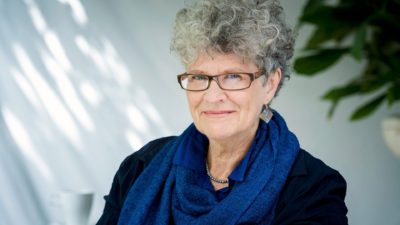Ask the author – Kate Grenville
2nd June, 2021
Kate Grenville, author of 2021-shortlisted novel A Room Made of Leaves, answers some questions below and in our video Q&A here.
Q: How do you feel about being shortlisted for the Walter Scott Prize for Historical Fiction?
Writing from Australia, you sometimes feel you’re on the edge of the world – but of course the characters in my book are British – the first colonists in a strange new land. Elizabeth Macarthur, the extraordinary real woman my novel is based on, was from the little village of Bridgerule in Devon, and her distinctly difficult husband was from Plymouth. So being shortlisted for this prize confirms that there is no edge to the world, just connections in every direction.
Q: How did the people and times you write about in this novel first lodge in your imagination?
Twenty years ago I wrote a book called The Secret River, about frontier conflict in Australia. Researching it, I read about Elizabeth Macarthur and realised that the polite myth about her – that she was a compliant, devoted wife – was almost certainly not true. I set about inventing her secret memoirs, taking the letters of the real woman as my starting-point and reading between the lines to meet the woman I think she must have been – smart, sexy and a bit cunning.
Q: Do you think stories about the past can help us to deal with the present and think about the future?
My books are mostly set in the past, but they’re all about the present – the puzzles that our histories have left us with. A Room Made of Leaves is about the dangerous myths that are invented about the past: myths about women and what they felt about their powerless lives, and myths that justify the taking of a continent that belonged to other people. If we can come to the past freshly, looking at it from a different perspective, we can see the present in a different context. That offers us the chance to make different choices.
Q: What has your experience of the pandemic been and has your writing been affected?
Everyone I knew made grand resolutions for lockdown – learn French, read Proust, etc. I was very lucky in having a commission to write and record an audio book about my grandmother, a “prequel” to an earlier book about my remarkable mother. Lockdown brought out the hermit I’ve always really been but was ashamed to admit to – I loved hunkering down in a Melbourne winter and just writing away, getting so submerged in the 1890s it was a shock to realise it was actually 2020. .
Q: The 250th anniversary of Sir Walter Scott’s birth this year will celebrate his massive contribution to cultural life as a novelist, poet, playwright, designer, lawyer, historian and inventor of the historical novel. Does Scott mean anything to you, and do you see yourself continuing his storytelling tradition in any way?
I loved Scott’s novels as a child – Ivanhoe and The Talisman were particular favourites. I inherited them from my older brothers and spent many happy hours in my treehouse reading and re-reading them. The Australian history I learned at school was eye-wateringly dull – all explorers and sheep – but reading Scott set off something in my imagination. He showed that the past was at least as dynamic and dramatic as the present, about complicated people making complicated choices. When people ask me, do you really think a novelist is entitled to speculate about the past? my answer is, Homer did it, Shakespeare did it, and Scott did it. Those mighty writers allow the rest of us to swim along in their wake.
Q: The Walter Scott Prize has a younger sibling, the Young Walter Scott Prize, which is a creative writing prize for young people (11-19 years). If you were asked for one tip to help young writers start writing fiction set in the past (before they were born), what would it be?
I’d say, start by reading plenty of history. Read the work of historians but also, if you can, some of the original sources the history is based on. (When I was 12 I read a book about Captain Cook that quoted big chunks of his journal – it was a formative experience.). Wait till something jumps out at you – something you can relate to from your own life. History is full of schoolyard bullies, for instance, even though many of them are called Sir or General. Then – as Stephen King advises – close the door while you write the first draft, letting it go wherever it takes you ( rather than where you think it should go). Don’t show it to anyone too soon – only open the door when you’ve done a few drafts and you feel as if you know what you’d like it to be, even if it isn’t there yet. Good luck!

